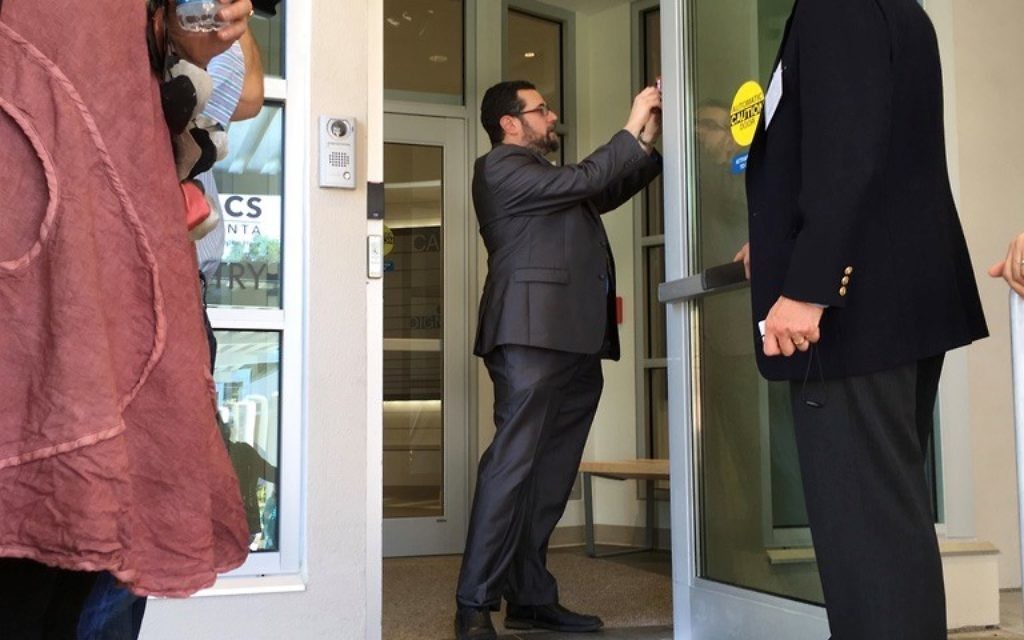B’nai Torah: How Will We Answer Life’s Tests?
We are tested when we personally face challenges and, even more so, when we see them affect those around us.
“And it came to pass after these things that G-d tested Abraham” (Genesis 22:1).
So begins one of the Torah portions read and studied on Rosh Hashanah, dealing with the binding of Isaac. Our sages grappled with the implications of the statement. Why would G-d need to test Abraham?
Surely the All-Knowing already knew what the outcome would be. How could it be fair for G-d to permit suffering to prove a point?
Get The AJT Newsletter by email and never miss our top stories Free Sign Up
Furthermore, as careful studiers of the text, they concluded that this was not an isolated incident, but rather was the culmination of a full 10 tests imposed on Abraham.
How do we respond when things are tough, when we fear that G-d might be testing us, either as individuals, as a community or as a society?
The Mishnah (Pirkei Avot, Chapter 5) claims that the binding of Isaac was just one of 10 tests Abraham weathered, and different sages search the biblical text to identify the other nine. Some trials generated more physical distress, while others were more existential in nature.
Abraham was commanded to circumcise himself and his household. How would he respond to the threat of physical pain to himself or to those who mattered to him? Many of us have had the misfortune to endure personal illness or infirmity ourselves or to see disease touch those who are dear to us.
Famine was yet another test for Abraham. How would he respond when the supposed land of milk and honey left him hungry? Some of us have faced personal financial challenges in the past year.
Maimonides, the great medieval philosopher, writes that the first test Abraham faced was being asked to leave his homeland: “Lech lecha.”
Exile, Maimonides would say, is a test. It is hard being a stranger or a foreigner, doubly so if one feels that one is unwelcome. In the past few weeks, we have seen thousands flee Hurricanes Harvey and Irma. For some, the sojourn will be temporary, but others will not have homes to return to.
Two of Abraham’s other tests revolved around conflict in his home: the dispute that began between Sarah and Hagar and then was carried out between their sons, until Ishmael was sent away.
Conflict in one’s own home is one of life’s greatest stressors. This year has been marked by strident political conflict and unrest in our American society and by increasing tension and negativity within our Jewish family regarding issues of religious freedom in Israel.
Abraham’s ultimate test took place at Isaac’s altar. Would he bring down the knife on his son?
The test was clearly whether he would follow G-d’s word, but I wonder what answer G-d was expecting. It is certainly a test of character as to whether Abraham would put aside his own suffering in the pursuit of divine command. Was G-d also looking to see whether Abraham would be moved by the suffering of his son, by the sight of another human being in distress?
Based on the model of Abraham’s trials, I would argue that we are tested not only when we are personally faced with challenges and troubles, but even more so when we see them affect those around us.
When we face personal illness, financial insecurity or conflict, we have no choice but to engage and respond. We are truly tested when we see suffering and distress around us and could, if we wish, choose to be mere bystanders.
Do we engage to help those who are hungry, who are ill, who are strangers, who have no home? Do we stand up to take the side of justice when there is conflict in the larger world, even though it might be easier to leave the fight to others?
We come up against life’s tests, big and small, every day. There is no one lecture or course that can prepare us for all of them. Even so, we are fortunate to have the wisdom of our tradition as our guide. With the Torah and the words of our sages in hand, at least we can consider these tests to be “open book.”
On behalf of my own family and the entire B’nai Torah community, I wish you a year of blessing and a year in which we pass all of life’s tests.
L’shana tova tikateivu v’tichateimu: May you be written and sealed in the Book of Life for a good year.
Rabbi Joshua Heller is the senior rabbi at Congregation B’nai Torah (www.bnaitorah.org).





comments